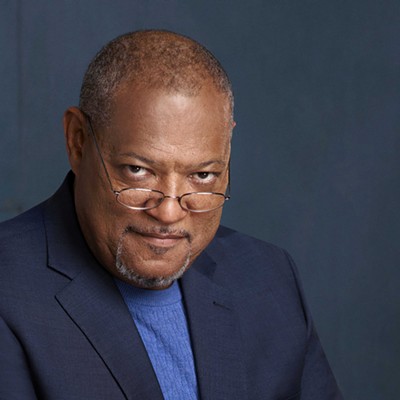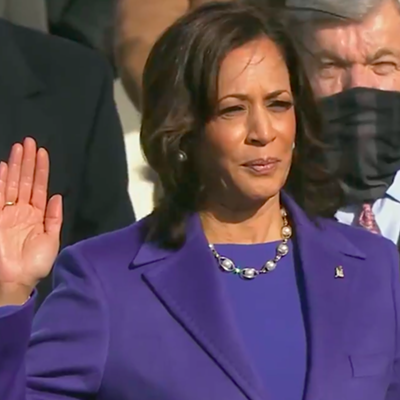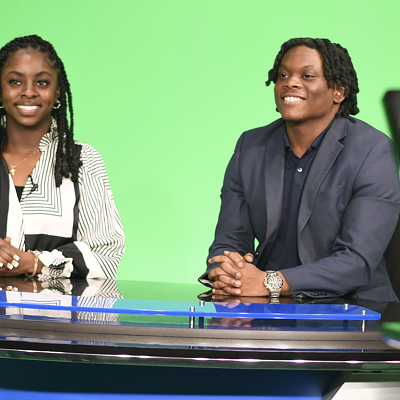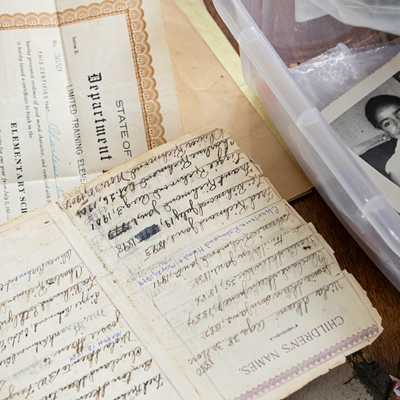TEN YEARS AGO a little start-up called the “Savannah Film and Video Festival” premiered at the Trustees Theatre, then newly restored by the Savannah College of Art and Design.
A decade later, under the truncated moniker “Savannah Film Festival,” it has become not only one of the best-regarded such events in the country, but an enormous boost for the local economy as well.
While SCAD contributes the vast majority of funding for the Festival, don’t forget that there’s also a large component from city of Savannah taxpayers and various local corporate sponsorships (including this newspaper), making it truly one of the area’s biggest, most beloved and most inclusive community events.
In those ten years, a range of renowned guests have trod the boards of the Lucas and Trustees theatres and talked with Savannahians up and down Broughton Street and beyond, including Peter O’Toole, Kathleen Turner, Alec Baldwin, John Waters and yes, even our own Paula Deen.
To mark the tenth anniversary of the Festival we went to the Trustees Theatre, original site of the event and current home to its administrative offices, to talk with two of the Festival’s key figures over that ten-year period: Festival Executive Director Danny Filson and Managing Director Len Cripe. They talked about how the Festival began, how it got to where it is today, and where it’s going in the future.
Tell us the exact moment the Savannah Film Festival was born.
Len Cripe: I guess it was when Danny got a call from President Wallace asking him to start a film festival. She thought it would be good for the students, and that was also at a time when a lot of big films were being shot here in town. If you notice, it was also a time when a lot of other film festivals around the country were starting up. It was right around the advent of the digital video camera and projector. Up until that point it was frankly just a lot harder to screen films.
Later on, was there a single “Eureka!” moment when you realized, ‘Hey, we’re really onto something here?’
Danny Filson: John Waters, without a doubt.
Len Cripe: Well, I was going to say the 2004 Festival. That’s when you could see the momentum shifting from this purely local event to an event that the industry was really picking up on. We began getting much more significant films in terms of the Academy and from a critical standpoint. We got films honored with Academy Awards and BAFTRA, things like that.
We could also see from that time forward there was more local interest. We got more phone calls from Jacksonville, Charleston, people coming down from Atlanta. A bunch of little things all lined up. I remember at the after-action report for that year when it was over, and we all sort of looked around the table and said, “OK, we know what we’re doing.”
Danny, you said John Waters.
Danny Filson: Well, maybe the first inkling I got personally was when James Ivory was here. He was one of our early guests of really international recognition.
I was driving him back to his accommodations and he turned and said to me, “this was a time out of time experience.” He said it was his complete experience with the college, with Savannah and our people.
A couple of years later John Waters was at the Lucas, and it was standing room only. That was the first time I felt the Festival really, really unite the student body, the first time you could hear students saying, “I can really gain from this.”
Len Cripe: I probably shouldn’t say this, but I knew we were onto something about three years ago when some people tried to use counterfeit passes to get in. I’ve still got a stack of ‘em I kept just to remember.
The fact that someone would go through all that effort — and they were very professionally-done counterfeits, someone spent a lot of time on them — that was sort of a signal that something big was going on with the Festival.
What kind of changes do you envision for future editions of the Film Festival?
Len Cripe: In terms of the future we’re always analyzing how we can improve on what we’ve got. One thing we’re looking at right now is additional venues. We’re also thinking next year of having some 9:30 p.m. screenings. You know, people get home from work late and may not always be able to make something at 7 p.m. The Tybee Theatre has also expressed some interest in hosting events.
But if we move toward using satellite locations, we have to keep in mind to always maintain the integrity of the Festival and what it’s here for. One thing that makes the Festival great right now is you’re out on Broughton Street, walking from the Trustees to the Lucas. That thriving atmosphere really attracts people. Whereas for the L.A. Film Festival you might go to the DGA building on Sunset, and then have to get in your car and drive to the Egyptian or whatever. Here you don’t have to do that.
Danny Filson: We have a very strong responsibility to maintain the atmosphere. Making opportunies elsewhere is fine, but we can’t do it at the expense of what the college has created. If it doesn’t benefit the students, we won’t do it.
We know most everything the college does will have a ripple effect in the community. We’re cognizant of that and realize that’s part and parcel of the whole experience. But what builds this Festival is bringing the students and the community together.
There are tons of film festivals now, but Savannah’s seems to be the only one with a strong educational component.
Len Cripe: I certainly don’t know of any others. That’s what a lot of our guests tell us they appreciate most about the Festival, that they’re able to give back. And what makes the difference there is the college component. It makes people want to share their insights and help other people out. For the 200 industry professionals we bring in each year, that’s consistently what they tell us is the most important thing about the Festival.
I really don’t think if we were a stand-alone festival we’d be anywhere near as successful. Charleston is holding its first film festival in May of next year. I almost want to pick up the phone and tell them, “Hey, do you really want to be successful? Why don’t you ally yourself with some educational institution in the area?”
I’ve always found the most exciting part of the Festival to be the competition films. There’s a real sense of discovery about them you don’t get with the bigger films.
Danny Filson: People instantly recognize the screenings, with the honored guests. But year after year we have huge crowds come in for the competition films during the course of a day. We’ll typically get three times as many people come through the week to see the competition films as the evening screenings.
Who picks which guests to invite and how?
Len Cripe: It’s about networking with friends and with friends of the college. It’s about people bringing ideas to us and us making it work somehow. Another aspect is the faculty here. Many of our professors have great connections in the field.
Danny Filson: Filmmakers are always working on their next project, so it’s not an easy chore to get their schedules all lined up. Some people we’ve literally asked for years before they were able to find time to come.
Here’s an example of how it works. You know Bobby Zarem, right? For example, it was him talking about bringing in Vanessa Redgrave, and then us all asking what would make her first time in Savannah really special. And then somebody said, why not get all the Redgraves? So Bobby spoke to them and their schedule all worked, which was a miracle.
A lot of invitations take years to come to fruition, but once they come to Savannah they’re sold. And from there it’s word of mouth. That’s the most phenomenal aspect of the Festival’s success. They’ll go back to L.A. or wherever and tell everybody, guess where I was?
The thing about that word of mouth, though, is you can’t mess up or you’re done. One mistake and it all goes away. Everything has to be perfect every time.
Savannah itself seems to be the real star of the show.
Danny Filson: The entire visit for our special guests is made or lost in that 15 minutes from the airport to downtown. They get off the plane and they’re tense, they don’t’ know what to expect or how things are going to be, they don’t want anything to go wrong. But by the time we get into town and make that right turn onto Oglethorpe, they’re won over. From that moment on, they’ll be 100 percent themselves.
Len Cripe: Certainly that comfort has created a few scenes of notoriety, but essentially they’re good, happy people while they’re here.
Anyone in particular that seemed to enjoy Savannah even more than the others?
Danny Filson: I remember Peter O’Toole’s time here very fondly. He’s one of my all-time favorites. I remember when he came out on the Trustees stage and I watched him just totally milk the audience for a 12-minute standing ovation. It was incredible.
I think a lot of the word-of-mouth success has to do with the fact that celebrities aren’t hassled here. They’re not hounded by paparazzi or treated like animals in a zoo.
Danny Filson: Well, like Len says, it’s not a velvet-rope festival.
Len Cripe: As we grow and maintain notoriety, there will be questions of how we maintain that accessibility. But certainly that’s one thing that makes the filmmakers really happy and relaxed — the fact that they don’t need an entourage or “protection.”
Danny Filson: People are polite in Savannah. They may come up and say, “Pardon me, I just wanted to let you know....” That openness allows filmmakers to be relaxed and comfortable.
Why is it that with internet and cellphone technology being so important — with directors now specifically filming things to look good on tiny three-inch screens — going to see a film in a movie theatre with other people is still such a popular thing to do?
Danny Filson: It’s just magic. It’s a fantasy experience. It hasn’t changed since people were sitting around the fire in a cave watching the hunter reenact the hunt. 
































